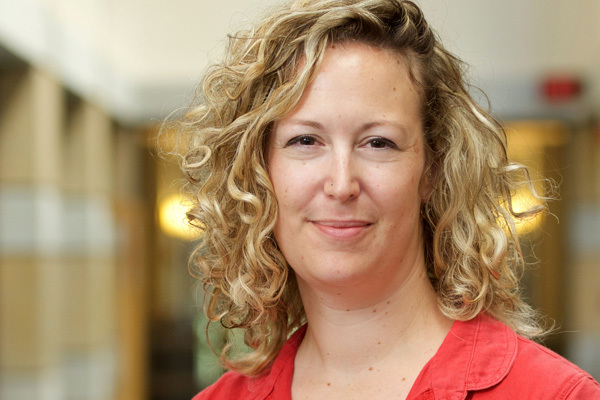Ruth Carmi
Peace Studies & Sociology
Ruth Carmi is a PhD candidate whose previous professional work as a human-rights lawyer informs her study of the connection between Israeli society's racial formation, gender, and the prolonged Israeli-Palestinian conflict.
Her research investigates the oppressive forces that shape the state's discrimination against women of color in a local context and the ways in which these forces influence women of color within and across ethno-racial groups. Informed by Black feminist thought, intersectionality, and critical race theories, her research examines the effect of the Israeli-Palestinian conflict on the systematic marginalization of Palestinian and Jewish women of color in Israel.
Her dissertation, entitled “Intersectionality in the Israeli Welfare State,” examines the “bureaucratic logic” of the Israeli welfare state by qualitatively analyzing Israeli Supreme Court Cases that focus on Israeli women of color and questions of motherhood within the Israeli welfare state. A multi-method qualitative approach to these cases, using discourse and content analysis, social-historical analysis (legal archeology), media analysis, and in-depth interviews with the lawyers involved, allows her to derive theoretical conclusions from a deep analysis of a small number of cases and uncover the connection between judicial decisions, discursive reasoning, and institutional procedures. Her findings show that the Israeli-Palestinian conflict and the militarization of Israeli society center Israeli social understandings around the binary of “Jews versus Arabs,” denying systematic racism against Jews of color and particularly mothers of color. This discourse obscures how the Israeli welfare state constructs mothers of color as “bad mothers,” which ensures their ongoing dependency on welfare aid and justifies state intervention in their lives.
Her next project will ask whether intersectionality theory can be used in social change advocacy. In contrast to global academic and activist trends that use intersectionality theory to further social struggles, Israeli lawyers often bracket their client’s intersecting identities. Understanding the similarities and differences between activists’ and lawyers’ approaches can shed light on the connection between theory and practice, expand our understanding of opportunities and challenges to intersectionality lenses in advocacy, and translate sociological theory into public policy recommendations.
Publications
Atalia Omer and Ruth Carmi, (2022) Transgressive Geography and Litmus Test Solidarity. In Religion and Broken Solidarities: Feminism, Race, and Transnationalism. Omer and Lupo (Eds.). IN: University of Notre Dame Press.
Under Review:
Ruth Carmi and Atalia Omer, “Mizrahi-Palestinian Intersectionality as a Site of Resistance and Feminist Peacebuilding.” Theory, Culture & Society (2022)
Public Sociology:
Ruth Carmi and Atalia Omer, eds., Women and Peacebuilding, Kroc Institute for International Peace. Studies Peace Policy, May 2022, https://peacepolicy.nd.edu/issue/2022/may-2022/
Ruth Carmi, contributor. Women and Peacebuilding [Audio podcast episode]. In Peace Policy, May 25, 2022. https://thekroccast.podbean.com/e/peace-policy-spotlight-women-and-peacebuilding/
Ann Mische, Ruth Carmi, Anna Johnson, Leslie MacColman, Şehrazat G. Mart, and Carli Steelman, “What’s Sociological About Peace Studies?” August 21, 2021, PWSC Blog
Ruth Carmi, “Between Minneapolis and East Jerusalem” July 10, 2020, Contending Modernities Blog, https://contendingmodernities.nd.edu/global-currents/between-minneapolis-and-east-jerusalem/
Professional Research Reports:
Ruth Carmi, “Racism and Gender in Israel.” Israel Religious Action Center. January 2014.
Ruth Carmi, Ricky Shapira-Rosenberg “Excluded, For God’s Sake: Gender Segregation and the Exclusion of Women in Public Space in Israel (second annual report).” Israel Religious Action Center. January 2012.
Contact
Caroline Hughes
Director of Doctoral Studies
Kathryn Sawyer Vidrine
Assistant Director for Doctoral Studies
